
Dialogue Organized by the Doha International Family Institute (DIFI). Topic: As They Raised Me From Childhood: Specialized Programs to Better Parenting
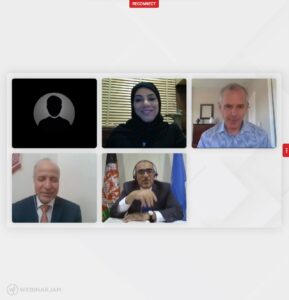
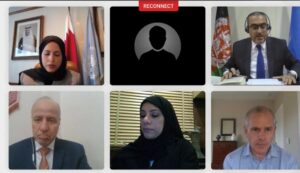
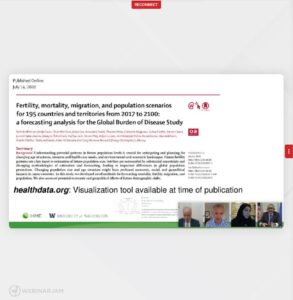
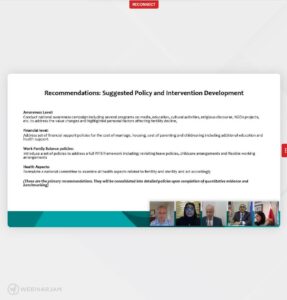
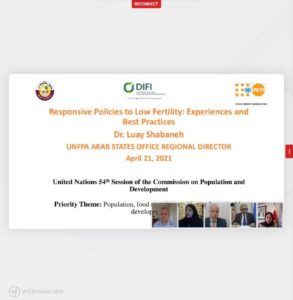
Organized by the Permanent Mission of the State of Qatar in collaboration with the Doha International Family Institute and the United Nations Population Fund – Regional Office of Arab States (UNFPA)
United Nations 54th Session of the Commission on Population and Development
Priority Theme: Population, food security, nutrition and sustainable development
Partners:
Purpose
The Doha International Family Institute (DIFI), a member of Qatar Foundation, in partnership with the State of Qatar Mission to the United Nations and United Nations Population Fund – Regional Office of Arab States (UNFPA) aims to organize a Side-event at the fifty-fourth session of the Commission on Population and Development of the United Nations. This side-event builds on DIFI’s work on “Social Aspects of Fertility in Qatar”. It seeks to discuss factors impacting low fertility in the world with the aim of identifying good policy measures and practices introduced by the affected countries.
Background
According to evidence, there are seventy-five countries whose fertility levels dropped below the replacement level which is 2.1 child per woman and this number is expected to increase to 120 by 2050. [1] The decline in the fertility rate represents a great challenge to countries because it leads to a decrease in the population. Equally, it leads to increase in number of elderly citizens and the diminish of the working force which is needed for national development and economic growth.
Factors impacting low fertility are diverse and multiple. In some countries it was fueled by postponement of marriage and children bearing.[2] In others, it was induced by cultural factors, [3] the working conditions of the labour market, the educational system, housing, youth unemployment,[4] or prevailing gender norms, amongst other influential factors.[5] Declining populations pose far deeper threats than simply a decline in the number of people. Within a world that its population is aging rapidly, immense pressure is placed on working-age individuals to support their families and the country. The diminishing number of young people to replace the elderly upon retirement will oblige the elderly to be more dependent on the social welfare system or continue working beyond retirement age. Social welfare systems in countries with declining populations will suffer from an increased demand and pressure on programs offered by the State.[6]
Policymakers are concerned about the impact of low fertility on the demographic structure of the population, the age structure, the working force, the social security network, and the impact that all these different aspects have on countries’ development, economic growth and prosperity.
[1] UN DESA (November 2015) “Cross-cutting issues and policies in countries experiencing low fertility”, Policy Brief No. 1, United Nations Expert Group Meeting on Policy Responses to Low Fertility, New York, 2-3 November 2015
[2] UN DESA (November 2015) “Fertility, family change and policy adjustments in the Czch Republic”, Policy Brief No. 6, United Nations Expert Group Meeting on Policy Responses to Low Fertility, New York, 2-3 November 2015”
[3] UN DESA (November 2015) “Regional variations in fertility trends and policies in Canada”, Policy Brief No. 4, United Nations Expert Group Meeting on Policy Responses to Low Fertility, New York, 2-3 November 2015
[4] UN DESA (November 2015) “Not so low fertility in Norway – A result of affluence, liberal values, gender-equality ideals and the welfare state”, Policy Brief No. 13, United Nations Expert Group Meeting on Policy Responses to Low Fertility, New York, 2-3 November 2015
[5] UN DESA (November 2015) “Cross-cutting issues and policies in countries experiencing low fertility”, Policy Brief No. 1, United Nations Expert Group Meeting on Policy Responses to Low Fertility, New York, 2-3 November 2015
[6] Tari Glowaki and Amy K. Richmond (2007) “How Government Policies influence Declining Fertility Rates in Developed Countries”, States Geographer, 2007, 40:32-38
Objectives
This side-event aims to discuss declining fertility from different perspectives with an aim of identifying policies and best practices undertaken by concerned countries. The event seeks to:
Agenda:
Moderated panel discussion followed by Q&A, among representatives of government, civil society and UN entities.
Welcoming Remarks
H.E. Ambassador Alya Ahmed S. Al Thani, Permanent Representative of the State of Qatar to the United Nations
Panel Discussion
Moderator:
Dr. Ramiz Alakbarov, UN SG’s Deputy Special Representative for Afghanistan, UNAMA
Panelists:
Dr. Sharifa Noaman Al-Emadi, Executive Director, Doha International Family Institute (DIFI)
Dr. Luay Shabaneh, Regional Director, United Nations Population Fund/Arab States (UNFPA)
Prof. Christopher Murray, Director of the University of Washington Institute for Health Metrics and Evaluation
To watch the event click here : https://d1f7pnslmqdgqf.cloudfront.net/u230433/629493-134525387431040035.mp4


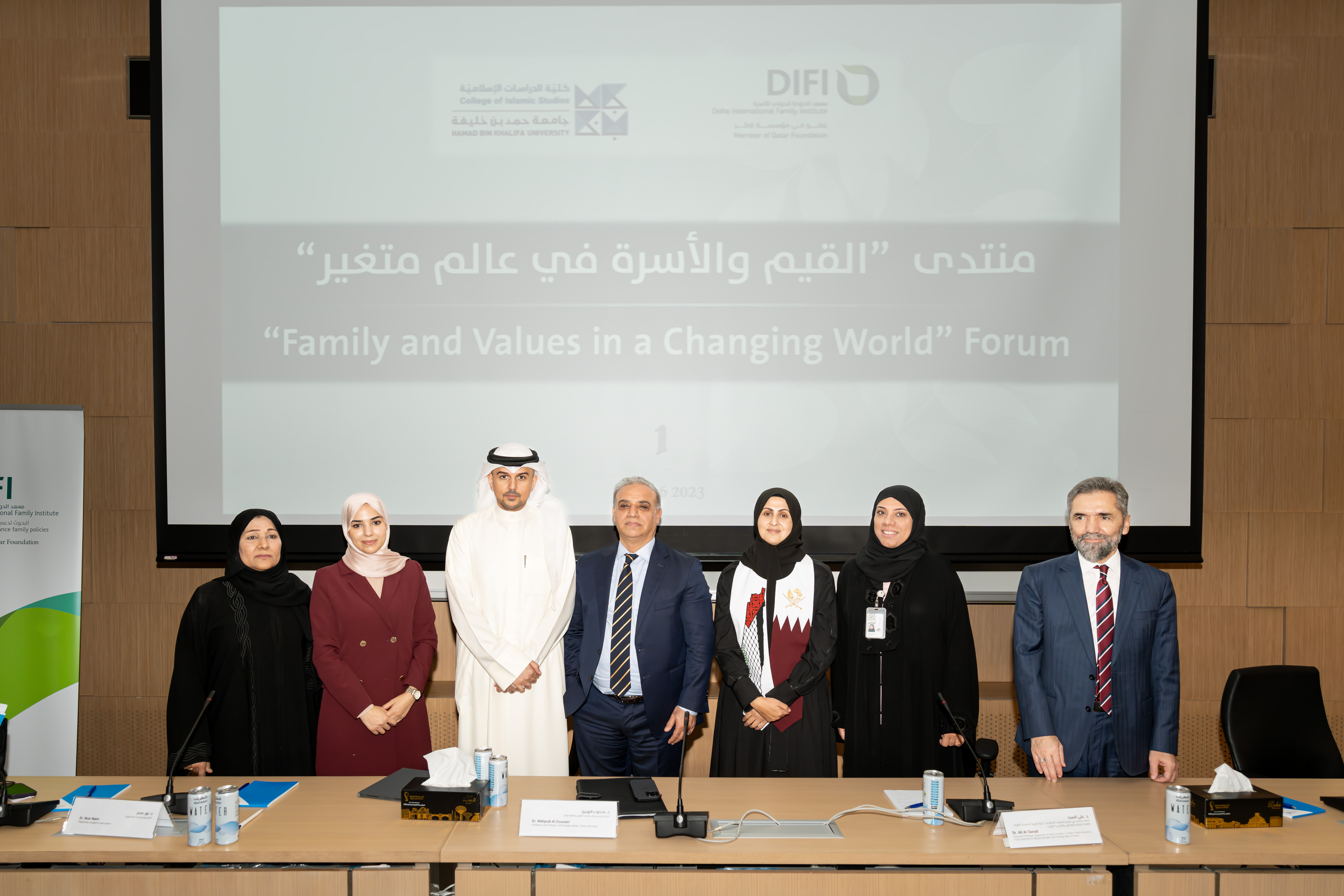
The Doha International Family Institute (DIFI) has launched the OSRA research grant in its sixth cycle which is a research grant on Arab families and family policy related issues.
Find Out More